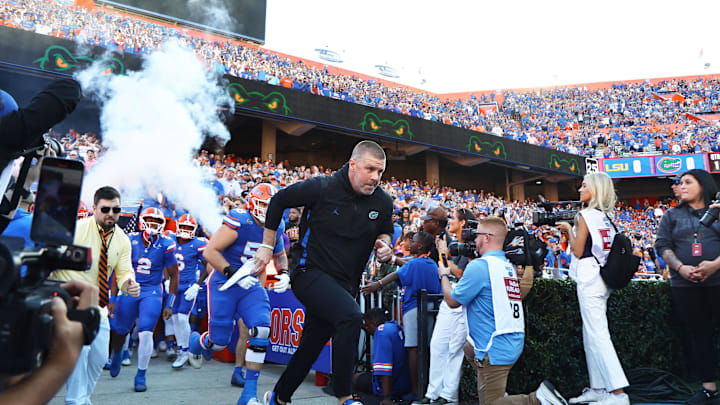One of the very real narratives that has played out over this summer for the Florida Gators is whether they are competitive in the NIL space compared to the big boys of college football. Anytime there has been a bidding war for a top-rated prospect, Florida hasn't seemed willing to play ball.
The NCAA has been trying to get spending under control since NIL became the way of the land, and a new executive order from President Donald Trump piggybacks off trying to restore order to the market.
If enforced, it would be a win for Florida. Whether or not it can be enforced is a different question.
Donald Trump signs an executive order
President Trump's executive order "prohibits third-party, pay-for-play payments to collegiate athletes." The order claims, though, that it "does not apply to legitimate, fair-market-value compensation that a third party provides to an athlete, such as for a brand endorsement."
This aligns with the NCAA's efforts to establish a framework, requiring all NIL deals to be reviewed by a third party to determine if the price is within a fair market range.
One of the problems Florida has had in the NIL space has been keeping up with schools like Texas, LSU, Ohio State, Georgia, and Oregon. Even schools like Texas Tech have started to emerge out of nowhere as their spending has shot up.
So even though the Gators continually make great progress with recruits and seem to always be in the early running with a number of top prospects, it comes up short more times than not when it comes to matching the contracts other schools are able/willing to offer.
If, and it is a giant if, there is any enforcement in place, it would be a win for the Gators as they would be in a position to match the spending of everyone else.
However, it is unclear from the executive order what the plan would be for enforcement, as even if rules are in place to curb spending, we know teams would likely resort to pre-NIL days and seek ways around those rules.
Until more details come out, it's okay to be skeptical of the order. But it is at least a sign that Florida could be in a better NIL position this time next year.
